Anthony Reynolds - Interview Part 1
by John Clarkson
published: 21 / 2 / 2011
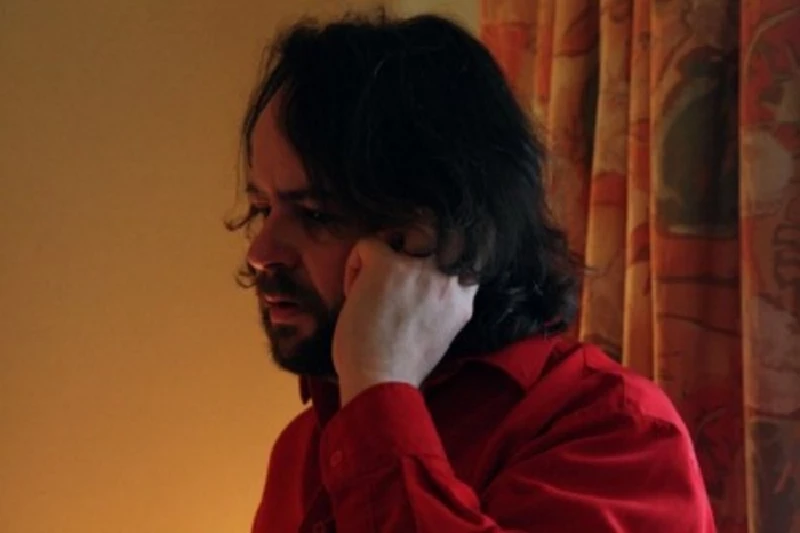
intro
In the first part of a two part interview, Pennyblackmusic Bands Night headliner Anthony Reynolds, who will be releasing a double CD retrospective 'Life's Too Long' in April, chats to John Clarkson about his former band Jack's first two albums, 'Pioneer Soundtracks' and 'The Jazz Age'
“I wanted to broadly represent the journey that the music embodies,” says Anthony Reynolds near the beginning of an interview with Pennyblackmusic about his forthcoming compilation album, ‘Life’s Too Long’. “It was tempting to put some more material from the collaborations that I have done, the stuff I did, for example, with Vashti Bunyan and Charlotte Greig, on it or maybe some more of my rarities. It wasn’t, however, to be just a collection of collaborations or rare tracks. It was to be something that reflected the title and all the things that I have done spread evenly. I was trying to represent and give an even portrayal of the journey from when I first started making music professionally.” Anthony Reynolds’ musical career has always remained just under the musical radar. He is many ways the archetypal cult act, lavishly praised by music critics and journalists and adored by a smallish, but ardent fan base, yet still in larger circles not especially well known. This has, however, in many ways benefitted rather than handicapped Reynolds. It has allowed him a greater freedom and flexibility than is often allowed to those musicians caught in the trap that often comes with having signed bigger record deals. While many of those other acts that emerged on sometimes larger labels at the same time as him have long since disappeared, Reynolds’ own musical career fifteen years on since he released his first record with his then band Jack has continued to evolve. Inspired by writers such as Charles Bukowksi, John Fante and Vladimir Nabokov and also the Velvet Underground, David Sylvian and Serge Gainsbourg, (“I was influenced as much by the way these men lived their lives as the actual work that they produced,” says Reynolds) he formed Jack in his native Cardiff with guitarist Matthew Scott in 1992. The pair moved to London in 1993, and, expanding Jack to a septet, signed to Beggar’s Banquet offshoot, Too Pure, in late 1994. They released two albums on Too Pure, 1996’s ‘Pioneer Soundtracks’ and 1998’s ‘The Jazz Age’, which combined Reynolds’ velveteen vocals and bittersweet tales of drunken hedonism and romance-usually-gone-sour with strings-swept orchestrations and ambient soundscapes. “Eno was always an influence and one that was never particularly picked up on,” affirms Reynolds. “I felt quite alone in my musical tastes a lot of the time when I was in Jack. Most people knew Eno as merely a producer for bombastic effluence such as U2 and the like, but his 70's and 80's solo albums had been beloved to me since I was in school.” “I tried to incorporate a sense of surrounding space - a literal ambience on some of those jack songs that was lifted directly from my experiences with Eno albums. You can hear it most obviously on ‘Pioneer Soundtracks’ on 'F.U.' and on the cicada sounds in 'I Didn't Mean It Marie'. It's also there at the beginning and end of ‘Three O’ Clock in the Morning’ on ‘The Jazz Age’. Incidentally, those cicadas are Joni Mitchell's cicadas. The producer, Peter Walsh, had recorded them from Mitchell's bathroom a few years earlier. It’s the closest Joni and I will get, I guess.” A third and final Jack album, ‘The End of the Way It's Always Been’, which was recorded by Reynolds and Scott in a different line-up and with an arsenal of session musicians, followed on the Paris based Belgian label Les Disques du Crepuscule in 2002. While focusing lyrically on some of the same issues as its two predecessors, it was in other senses a departure and, both more loops and electronica-oriented, also found Reynolds replacing himself on some of the key tracks with guest vocalists. In conjunction , Reynolds also fronted Jacques, a more low-key solo project which confusingly frequently also featured Scott on guitar, and with whom he released two albums, ‘How to Make Love Part 1’ (Setanta, 1997) and ’To Stars’ (Setanta, 2000), and three EPs, 'Faster than Beauty' (Mr Mistecarbi, 1999), ‘Roses for Ashes’ (Acuarela, 2001) and ‘Romantic’ (Acuarela, 2002). After his partnership with Matthew Scott dissolved in late 2002, Reynolds put out his next album, the lo-fi ‘Neu York’, under the moniker of 'Anthony' on an American fan’s micro label, Secret Crush Recordings, in 2004. His latest studio album, ‘British Ballads’(Hungry Hill, 2007), which came out under the name of Anthony Reynolds and featured guest appearances from both Vashti Bunyan and Dot Allison, despite being recorded on a shoestring, built on the orchestrations of Jack. A surprisingly uplifting testimony to Reynolds’ ten year relationship with his ex-girlfriend, it has been the subject of a previous interview with Pennyblack. ‘Life’s Too Long’, which is spread over two CDs and runs to 26 tracks, will be released on the Lanarkshire-based label Chaffinch Records in April. It features tracks from most of these releases and several more. These include ‘Io Bevo’, a 2004 single that he recorded with Italian group Hollow Blue’, and ‘Fall in Love With Me Again’ and ‘Yuka’s Life’, two of the B sides from ‘Steamin’, one of the singles from ‘The Jazz Age’. It is brought up to date with the title track, which Reynolds recorded in Greece earlier this year. Reynolds, after a long absence from touring, started playing one-off gigs again last year. He will be headlining the next Pennyblackmusic Bands Night at the Half Moon in Herne Hill, London on March 26th. Other than one other show last year in which he and his friend Charlotte Greig played tracks at the Freud Museum from an as-yet-unreleased musical on Sigmund Freud, this will be his first London gig since the demise of Jack. Pennyblackmusic spoke to Anthony Reynolds about ‘Life’s Too Long’ and some of its songs. 1.‘Pioneer Soundtracks(...’of Lights’ (live in 1998), ‘’White Jazz’, ‘Biography of a First Son’ and ‘Filthy Names)’) PB: ‘Pioneer Soundtracks’ seems to be written from the point of view of this outsider from London, arriving there and soaking up the sights of it and finding a lot of it really horrible. Was that the way you felt when you first came to London in 1994? AR: It was written from the perspective of someone who wasn’t from London coming to London, but I didn’t find London horrible. I found it monstrous, massive and grotesque occasionally, but I loved it. I was seduced by it. PB: There are two sides to that album. There is a lot of self-romanticism on it, but there are lines like the one about the rape on ‘...of Lights’ and its chorus line of “these are beautiful songs for ugly people.” Both of those seem to imply something more sinister. AR: I guess what I was saying there that I did find life very beautiful even though aesthetically where I was living was gross. I lived on Green Lanes in North London when I first moved there and a lot of ‘Pioneer Soundtracks’ was written in a room in Green Lanes including '…of Lights' which took characters from a Georges Bataille book and put them in contemporary London. Matthew lived in Wood Green which seemed quite glamorous by comparison. I then eventually graduated to Archway and after that moved to Holloway, then Dalston via a very brief diversion in Chelsea. The brief time in South London and in East London was a revelation. North London was a different city altogether. London was filthy. It was full of rubbish and drunks. It was noisy compared to Cardiff. It was much bigger. The scale of the city could be overwhelming and I got off on that. I could disappear. It really is more a nation than a mere city. It was an intoxicating cultural shock. I had never lived above a shop or on a busy road before. I had always lived down quiet streets in Cardiff and in London I had to wear ear plugs, and if I left the window open at night everything was covered in soot in the morning. It was not quite that dramatic, but there was definitely a blackening of stuff over time. I was just so excited though. They say that if you take a little bit of poison then it gets you high. It becomes a part of you, so I loved London. I felt fit and strong. I don’t know if I was back there now under the same circumstances if I would have the same attitude. My body now feels like it's started to say “Bye bye”in some ways. But at the time I was young. I could walk for miles on nothing but crisps and air. Youth is also a currency of sorts - it gets you invited to a lot of places that are barred when you're old and ugly. But the four songs that appear on ‘Life’s Too Long’ encompass my initial experience of London - one of the greatest cities in the world at the end of a century. Heady times. PB: A lot of those songs, such as ‘...of Lights’ and ‘Filthy Names’ are about discovering alcohol as well. You told us in a previous interview that you didn’t start drinking seriously until you were about 24, which was the age you were when you recorded ‘Pioneer Soundtracks’. AR: It was after the recording of the album. I had got drunk before in those awful ways you do when you are young and you get totally drunk once a year, but even when we recorded ‘Pioneer Soundtracks’ I was not versed in the…vocabulary of drink. I remember going up to the producer Peter Walsh’s house in the country -Surrey I think it was - I seem to remember he lived in the middle of a golf course! - to do pre-production work. It was just me and him that did that. Matthew never came to any of those sessions incidentally; even then his commitment was partial, according to how he felt on any particular day. Anyway, I recall that Peter was a gracious host, a very amiable man and he asked me, “Do you want some wine?” and I said, “Okay. “What colours have you got?" I had no idea really about it. He might have said, '”Do you want some green Vino'? A bit of Chablis Blue?” And I'd have accepted it. During the recording of the album I wanted to return the favour and I bought a bottle of Lambrusco, the lowest of the low in wines, although it was Pavarotti’s favourite drink apparently. Anyhow, I remember saying to Peter, “Oh, here’s a glass of wine. You like wine, don’t you?” and giving it to him, this wine connoisseur, and him spitting it out (Laughs). “What's this horrible stuff?” Christ, I used to drink 20/20 then. Fuck knows why. Speed and acid were more commonplace then too. And very easy to get - outside the tube station in Camden. I wonder if that still happens. £3 a tab! How did they make a profit…? Then the first time we played Paris it was a big radio show, the Black Session in 1996, and we turned up (Laughs) and went backstage and there was all this lovely fruit and cheese and all these good wines so I was told. I didn’t know what a good wine was and I started putting the reds in the fridge for after the show. I was really naive, but certainly around that time drink became more of a presence and began kind of lubricating all of the new experiences I was having, all the new powerful and intense situations I found myself in. It also helped me address my inherent shyness which is something I'd forgotten about until recently. PB: Jack are often portrayed as being this extreme alcoholic band. Was it a totally hedonistic existence, those first few years in London? AR: No, I actually became much more hedonistic and abusive with drink later and as I got into my thirties. I remember the first time vividly. I was with two friends in Dalston and it was five in the morning, and I remember looking at the whisky bottle - Chivas - which was empty and saying, “Gosh. We got our way through that alright,” and them saying, “What do you mean ‘we’? We don’t like whisky. We have been drinking beer and wine.” That was the first time I had drunk a bottle of Scotch on my own. I was 30 then. I felt a sharp shock of disgust, fear, pride and thrill. We never did anything like that in Jack. No one had a drink or drug problem although everyone binged on both and Matthew and Colin Williams, the bassist, were inveterate smokers, but I remember being conscious when I was in that group of us having a foppish and literate angle and wanting to counteract that. Most of us were heavy readers - I was into people like Charles Bukowksi and John Fante, Burroughs etc. George Wright, the keyboardist, was also well versed – Richard Brautigan, Amis, Maugham. Everyone in the group, however. utilised their library card to a healthy degree. Colin liked his Stephen King (Laughs). But some of us were working class too - Me and Matthew most obviously. Plus there's the question of currency again. It is amazing because one minute you’re poor and then you’re in a group and on a label and doing okay and you couldn’t pay to go anywhere if you wanted. Every gig you go to is free and at every after show party there are spirits and wines everywhere and people offering you a toot of this and a toke on that. There was plenty of opportunity to get drunk and also take drugs in a very casual, sociable way. “It was bloody marvellous” as we say in Wales… I liked the sense of abandonment that came with drink and drugs, but a lot of people in the record company had a problem with us being like that. I remember once we went to Germany and we were screaming for drugs and this girl, the record rep, was really upset and the next day someone at the label said to me, “You should be ashamed of yourself, demanding more Schnapps and cocaine at six in the morning. I thought that you were a beautiful poet. I thought that you were a serious writer, a dandy, an academic.” Which I was. But part of me was also becoming Lemmy. At that time I felt that I never had any professional obligations as a performer. I didn’t particularly like playing live. Although that's just changing recently. What I wanted to do then was write words. I didn’t even think of myself as a singer. I wanted to write really great songs with really great words and I remember I had this attitude of “We’re doing this show and maybe it will be good and maybe it won’t be. This is our world and if we have taken nine Es before going on we’ll see what happens.” I felt like I owed nobody anything other than what I felt like at any given point. I mean, I always turned up for gigs. The actual recordings were, however, in contrast always done in very sober circumstances. They were always written completely sober. At least my contributions were. 2. ‘The Jazz Age’ (‘Three O’ Clock in the Morning, ‘My World Versus Your World’, ‘Lolita Elle’ (live in 2002) and ‘Cinematic’,) PB: The brushstrokes on ‘The Jazz Age’ are wider. There are still songs about drinking, but there seems to be a stronger emphasis on that album on romance and the literary references are also more pronounced. ‘Cinematic’ name checks all these major artistic figures such as Cocteau, Picasso, Bukowski, Fellini and Woody Allen. Was ‘Cinematic’ an attempt to get as many of your differences literary influences into one song as possible? AR: There has always been a tradition of list songs, hasn’t there? PB: The same could be said about ‘My World Vs Your World’. It’s another list song. AR: I wasn’t really referencing anyone there though as I was with ‘Cinematic’. It is a list of grievances really. ‘Cinematic’ was a piss take. It was a reaction to the idea that people thought we would just go on stage and we would only ask for vintage Penguin paperbacks to be on our rider. It was us taking the piss out of ourselves but more so people's conceptions of us. People - some journalists I remember- were frightened or at least disturbed, provoked and annoyed by a Welsh working class boy using these references within their self defined context of 'Indie music'. But there is also in retrospect a kind of cheap thrill mentioning other people’s names. It kind of falsely embodies your work with a gravitas that it might not have otherwise which is ultimately detrimental to the work. PB: ‘Three ’Clock in the Morning’ is at one level about alienation. Was it also about drink or romance or both? AR: I always felt close to that song. I was reading this John Fante book, 'The Brotherhood of the Grape’, and he described this Italian father coming home drunk and he said, “He was singing this familiar tune when I heard him open the door and he fumbled his keys. He was singing the Italian folk song, ‘Three O’ Clock in the Morning,’” and I thought, “What a great title”, so I took that title. I wanted to write a song for Shara Nelson who had sung Massive Attack's 'Unfinished Sympathy' and had a solo album out that I liked, so I wrote that song with her voice in mind. I was living at the bottom of the Camden Road at the time I wrote that song and I found myself regularly walking down there at three o’ clock in the morning on the way home from the Electric Ballroom or the Marathon Bar and so it was based on that as well. I remember Colin Williams once saying, “What did you do yesterday?” and I said, “God, I was so hungover I just couldn’t get out of bed” and he said, “Yeah, I was the same.” Then I told him, “But I did write a song called ‘The Crack in the Ceiling’ because I couldn’t move and there was a crack in the ceiling, so I focused on that and got a tune out of it” and he said, “You’re lucky because I would never be able to do that in that position.” I would do that sort of thing quite a lot. I would be walking down Camden Road at three in the morning and would be thinking, 'This is fucking grim, but at least I can put it in a song.“ I later found out that ‘Three O’ Clock in the Morning’ was also a Scott Fitzgerald quote - “In the eternal night of the soul, it is always three ‘o’ clock in the morning” – and so I tapped into something there with that. Something universal. It is still a song that I play live today and a quietly popular song. I did an interview with Turkish national radio a couple of years ago and they told me it was their most requested song ever… The photographic credits that accompany this first part of the interview are as follows: 1. Paris 2011 by Cathy Boyce 2. London 1996 by Helen Tremaine 3. London 1993 by Eloise Gibb 4. London 1996 by Pat Pope 5. London 1996 with Lucy Wilkins by Anne Rouls.
Band Links:-
http://www.anthonyreynolds.net/http://anthonyreynolds.bandcamp.com/
http://www.pledgemusic.com/artists/anthonyreynolds
https://twitter.com/AJFReynolds
Picture Gallery:-
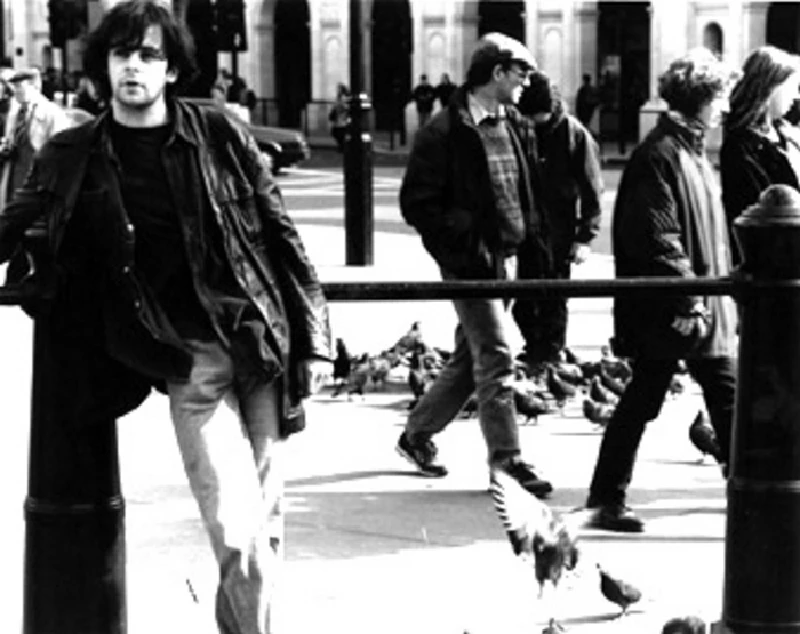
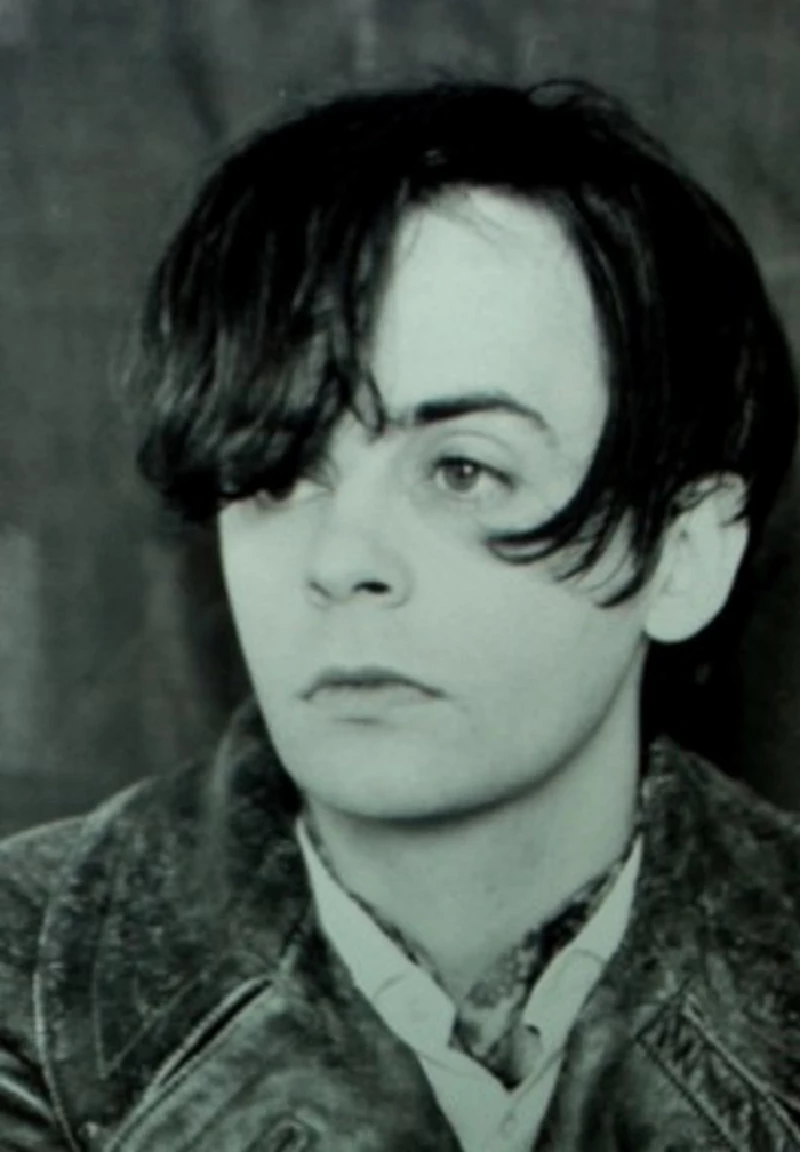
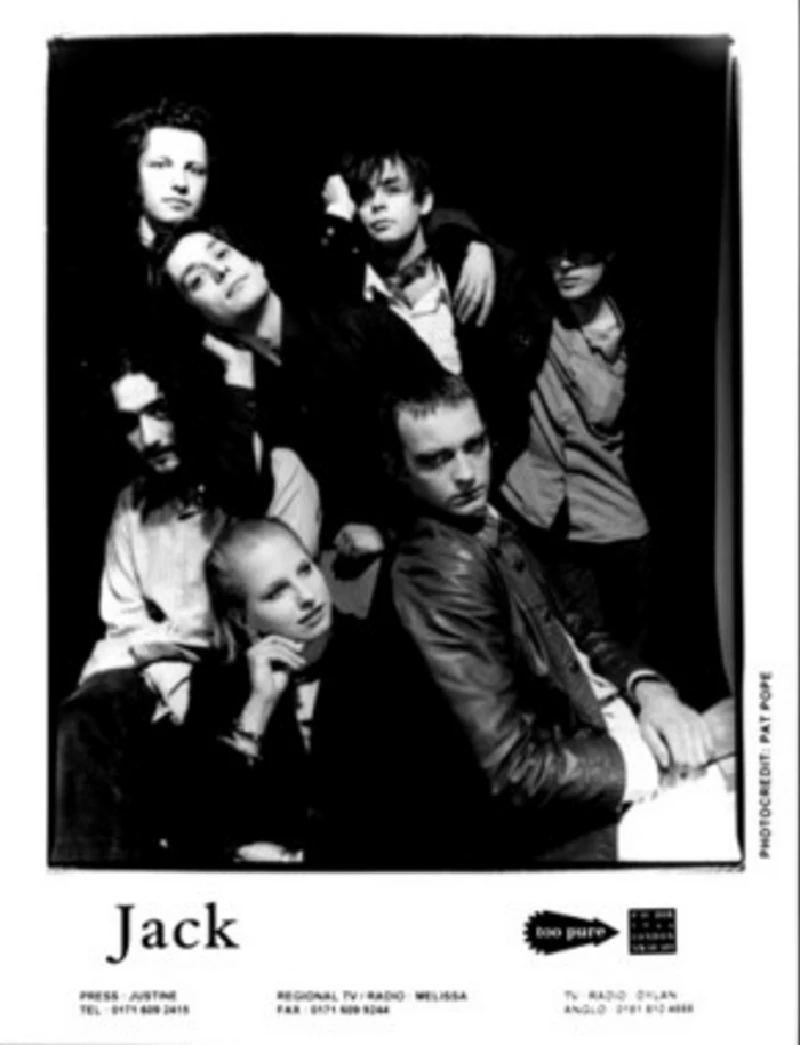
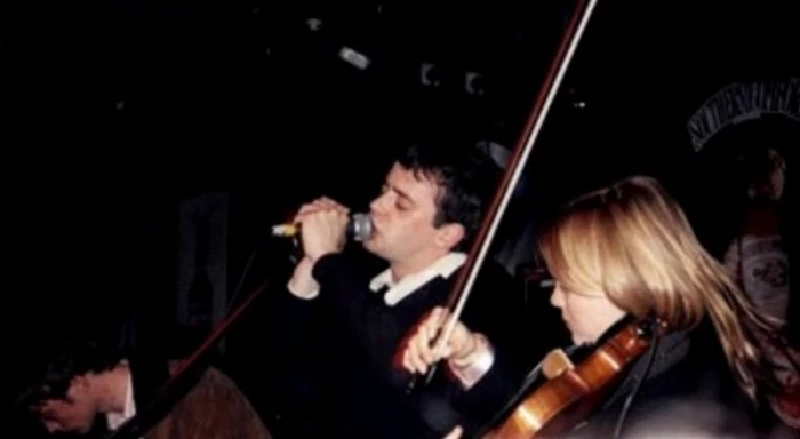
interviews |
|
Interview Part 2 (2011) |
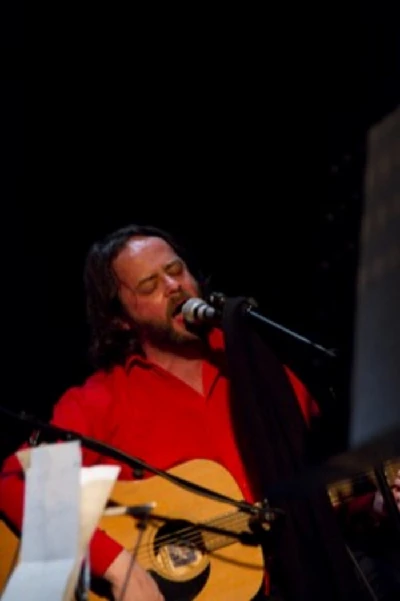
|
| ...while in the second part he speaks about their third album, 'the End of the Way It's Always Been', his solo career and his return to playing live after an absence of eight years |
| Interview (2010) |
| Interview (2007) |
soundcloud
reviews |
|
A Painter's Life (2019) |
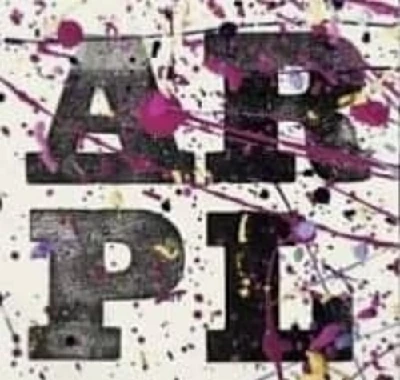
|
| Masterful new studio album from ex-Jack frontman, music biographer and cult solo artist Anthony Reynolds |
| A World of Colin Wilson (2012) |
| Life's Too Long 1995-2011 (2012) |
| Bees Dream of Flowers and Your Summer's Meadow Breath (2008) |
| Ponies EP (2007) |
most viewed articles
current edition
Carl Ewens - David Bowie 1964 to 1982 On Track: Every Album, Every SongArmory Show - Interview with Richard Jobson
Colin Blunstone - Thalia Hall, Chicago, 16/7/2025
Bathers - Photoscapes 1
Visor Fest - Valencia, Spain, 26/9/2025...27/9/2025
John McKay - Interview
Billie Eilish - O2 Arena, London, 10/7/2025
Robert Forster - Interview
Sir Tim Rice - Interview
Loft - Interview
previous editions
Heavenly - P.U.N.K. Girl EPManic Street Preachers - (Gig of a Lifetime) Millennium Stadium, Cardiff, December 1999
Beautiful South - Ten Songs That Made Me Love...
Oasis - Oasis, Earl's Court, London, 1995
Pixies - Ten Songs That Made Me Love...
Trudie Myerscough-Harris - Interview
Doris Brendel - Interview
Prolapse - Interview
Simon Heavisides - Destiny Stopped Screaming: The Life and Times of Adrian Borland
Paul Clerehugh - Interview
most viewed reviews
current edition
Sick Man of Europe - The Sick Man of EuropeLucy Spraggan - Other Sides of the Moon
Amy Macdonald - Is This What You've Been Waiting For?
Phew, Erika Kobayashi,, Dieter Moebius - Radium Girls
Davey Woodward - Mumbo in the Jumbo
Bush - I Beat Loneliness
Blueboy - 2
Alice Cooper - The Revenge of Alice Cooper
Cynthia Erivo - I Forgive You
Suzanne Vega - Flying With Angels
Pennyblackmusic Regular Contributors
Adrian Janes
Amanda J. Window
Andrew Twambley
Anthony Dhanendran
Benjamin Howarth
Cila Warncke
Daniel Cressey
Darren Aston
Dastardly
Dave Goodwin
Denzil Watson
Dominic B. Simpson
Eoghan Lyng
Fiona Hutchings
Harry Sherriff
Helen Tipping
Jamie Rowland
John Clarkson
Julie Cruickshank
Kimberly Bright
Lisa Torem
Maarten Schiethart